Deborah Arnott is stepping down after 21 years. She looks back on her battle with the tobacco lobby… and ahead to the vaping challenge
Quitting isn’t easy. But after 21 years of doggedly driving down smoking rates with tireless campaigning, Deborah Arnott retired last month as CEO of Action on Smoking & Health (Ash). She leaves the organisation with the proportion of adults still smoking in the UK at 11.9% [ONS] – the lowest since its records began and less than half the level when Arnott joined.
Under her belt is a long list of Ash-backed proposals now passed into law. Among them the banning of smoking in all public premises, including pubs and workplaces; the end of displaying tobacco products in shops; a ban on smoking in cars carrying children; and standardised packaging regulations (gruesome imagery included). Arnott also leaves with the Government soon to legislate a generational smoking ban, which when enacted will be a world first.
And it’s all happened despite the best efforts of a most formidable adversary: Big Tobacco. Are they really as bad as they’re made out to be? “Let’s be honest,” Arnott says. “I think they’re probably worse.”
Arnott joined Ash in 2003, and admits “I knew little or nothing about tobacco control” – save for one incident in the early 1990s during her time as a TV producer: she was approached by the company doctor who wanted to introduce a smoke-free workplace. They agreed Arnott would take the proposal to the union.
The union meeting was “literally a smoke-filled room”, Arnott recalls. “Everyone smoked. I used to smoke then, too. I said: ‘Look, the doctor would like to do this, let’s have a vote.’
“It went to a vote and almost everyone wanted to ban smoking in the workplace. The union reps were appalled!” Arnott recalls. “Because they were all smokers, they just assumed everyone would say no.”
A similar realisation rippled through society in 2007 with the ban on smoking in public places.
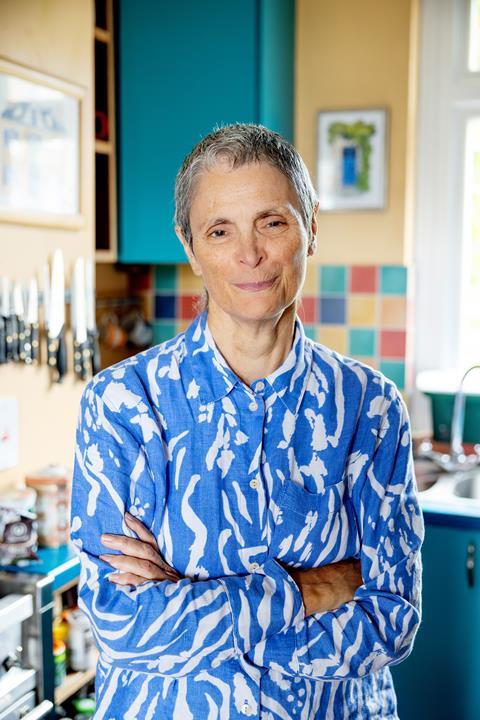
Name: Deborah Arnott
Age: 69
Family: Two sons, a granddaughter and four siblings
Pets: Children and grandchildren are quite enough
Potted CV: Born in London, grew up in Buckinghamshire and escaped back to London as soon as I could. University then Triumph cars. Took an MBA and switched to journalism. Switched again to run the consumer education function of the financial services regulator. Then to Ash
Best bit of advice you’ve received: From my eldest son, aged two, when I was complaining about a work problem to my husband: “Just don’t think about it mummy”
Dream dinner party guests: My family
Book currently reading: Bicycle Diaries by David Byrne
Currently listening to: The Coming Storm – the Radio 4 podcast by Gabriel Gatehouse
Death row meal: No idea, but it wouldn’t include a last cigarette
“It marked a change in attitude,” she says. “Prior to that the feeling was: as a non-smoker you might not like smoke, but you didn’t have a right to say to smokers: ‘I’d rather you didn’t smoke here.’ But why do we have to put up with this?”
After discussions in parliament, the debate captured the public’s attention. “There was so much media coverage because, basically, the public were interested. Newspapers found people responded to articles. Radio phone-ins got a deluge of responses to anything on smoking and where you can and can’t smoke.”
The policy had near-instant benefits to public health. In the year following the laws there was a 2.4% reduction in hospital admissions for heart attacks in England and a 12.3% reduction in admissions for childhood asthma, according to the NHS.
More Big Interviews:
-
Pasta Evangelists’ Alessandro Savelli on his ‘romantic and beautiful’ product
-
How Matthew Hall raised Butlers from the ashes
-
Amelia Christie-Miller: the queen of beans with a bold ambition
-
Meet the woman who’s freezing Jamie Oliver
Arnott has vivid memories of waking after shifts at a pub as a student – “your pillow, your hair, your clothes would all smell of smoke” – and describes the law as a “turning point”. The idea people once used to smoke inside pubs already seems outdated. “Kids growing up now can’t imagine that was the case,” she says.
Along with the public and their evolving stance on ciggies, “retailers are a really important part of the story” too, according to Arnott.
One of the biggest tobacco control measures in grocery was the Health Act 2009, which saw the open display of tobacco products banned, with larger stores having to comply from 2012 and smaller ones from 2015.
In the build-up to its passing, Ash worked to dispel Big Tobacco’s line that its products drove footfall that would be imperilled by a display ban. Ash research, however, found only a minority of shoppers bought tobacco, more than a third of those didn’t buy anything else when they did so, and that margins on tobacco products were poor compared with other items.
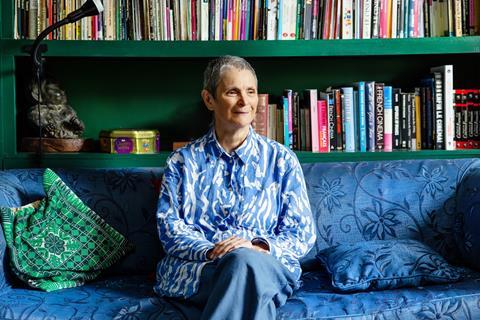
Big Tobacco battle
Big Tobacco “was trying to drive the retailers to do its dirty work” in the debate, Arnott says. “The tobacco industry comes in to see you all the time, pays for your display, says it’s your friend,” Arnott explains. But with those rows and rows of cigarette packs behind the counter, the tobacco industry had secured something “phenomenally valuable”.
“It meant the product was right in front of you every time you went to the shop,” she says. “It gave the impression everyone smoked. And you’re more likely to do something if you think everyone else is doing it.”
The prohibition on displays of cigarettes in shops and standardised packaging ultimately had little impact on retailers. In a 2022 survey of small retailers, commissioned by Ash, three-quarters felt the changes had either no impact or a positive impact on business. And again the societal benefits were clear – smoking susceptibility among adolescents fell significantly and brand awareness plummeted.
At every step towards a smoke-free UK, Big Tobacco has resisted, either overtly or discreetly. “Denial, deceit, delay” being the usual tactics for an industry not exactly known for being ethical.
“All the policies we recommend are supported by the evidence. It’s vital, and we have a reputation as a trusted messenger”
Nevertheless, to think Big Tobacco is unique in its lack of scruples is “a bit naive” adds Arnott.
“All companies are profit-seeking, ergo, they’re working in their own interest and you’re lucky if their interests can coincide with that of their customers, but they don’t always. Big Tobacco is certainly no worse than Big Oil or the big fossil fuel companies. It’s just that its products are that much more lethal.”

Ash’s influence as an advocacy group is based on always being able to back up its positions with high-quality proof – and “I have to say, that’s not true of all advocacy organisations”, Arnott says. “All the policies we recommend are supported by the evidence. It’s vital, and we have a reputation as a trusted messenger with government, with academics and with clinicians.”
Because of this, its stance on vaping – which has seen a phenomenal rise in usage in recent years – is counter to Ash’s usual nicotine-control approach. Vaping is provably “much less harmful than smoking”, Arnott says. But they are also popular among schoolchildren. The government now “needs to curb youth vaping while not undermining vaping as an adult quitting aid”, Arnott says. “That’s the important thing.”
Arnott is humble, responding to every one of her achievements at Ash by noting they were the effort of a team made up of “the most impressive people”.
But colleagues say she is something special: a “passionate campaigner” and “consistently effective influencer” who is “inspirational and tireless” and whose “impact extends worldwide”. Even Big Tobacco sources shared their grudging respect.
While Arnott is retiring, Ash’s work is far from done. “[Smoking] used to be popular throughout society,” Arnott explains. “It’s not any more. It’s highly concentrated in young adults and poorer, more disadvantaged communities. And it’s still a significant number, which is why it’s still the leading cause of premature death.
“Tackling smoking remains the biggest, the most important, public health objective that a government can pursue.







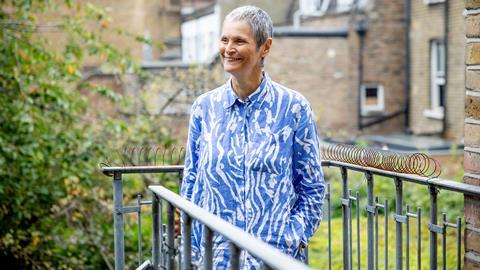

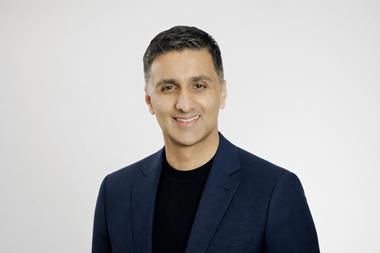



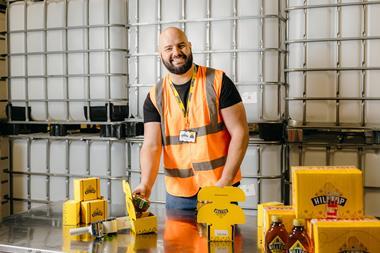
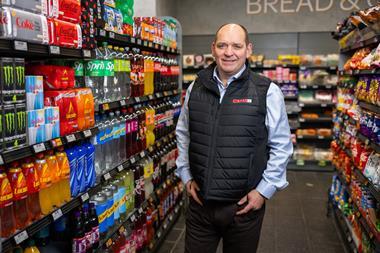


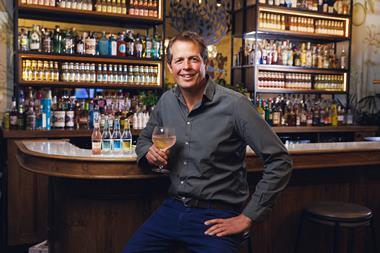
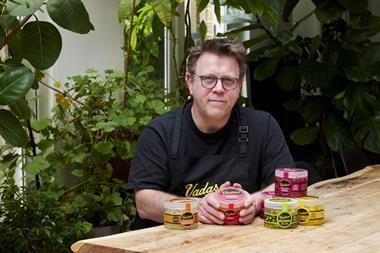
No comments yet